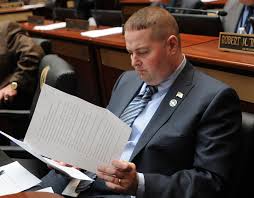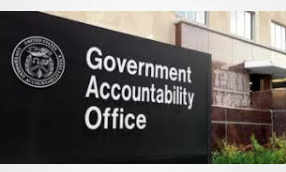The Ledger Independent reports
A medical cannabis bill acquired support and has officially been submitted to the House of Representatives on Wednesday.
State Rep. John Sims is the primary bill sponsor with State Rep. Alan Gentry as a cosponsor. Sims said that he stands behind the bill because of research and studies that show medical marijuana use as effective in certain situations.
“There are studies showing it helps without forcing someone to take pills every day,” said Sims. “This bill would allow for physicians to prescribe it to patients as an option.”
Secretary of State Alison Lundergan Grimes called on Kentuckians who are passionate about medical marijuana to join a campaign to not only educate and lobby the General Assembly in support of the House Bill 166.
“What started as a whisper years ago is now a loud chorus. Kentuckians have declared 2018 as the year they expect action on medical marijuana from their legislators,” said Grimes. “Now, with 29 states and the District of Columbia offering relief in the form of medical marijuana to their citizens, we must waste no more time. We’ve heard real, heart-wrenching stories from all over the Commonwealth about how access to cannabis can provide long-lasting and life-changing relief. The serious discussions this task force had have resulted in a solid piece of legislation that can change lives.”
Legiscan
https://legiscan.com/KY/bill/HB166/2018
Status
Spectrum: Partisan Bill (Democrat 2-0)
Status: Introduced on January 10 2018 – 25% progression
Action: 2018-01-10 – introduced in House
Text: Latest bill text (Draft #1) [PDF]
Summary
Create new sections of KRS Chapter 218A to define terms; restrict medical cannabis to certain patients with qualifying debilitating conditions; establish requirements for cultivation, production, processing, distribution, and sale in compassion centers; establish requirements for patients, visiting patients, and caregivers; establish professional protections for practitioners; establish protections for cardholders; establish certain protections for cardholders; establish responsibilities for cardholders; allow restrictions on possession, possession while operating a motor vehicle, and smoking; clarify that use of medical cannabis by a qualifying patient is to be treated the same as use of prescribed pharmaceutical medications; establish additional protections for medical use; clarify that nothing in the bill requires government programs or private insurers to reimburse for the costs of use or prohibits an employer from disciplining an employee for workplace impairment; establish a medical purpose defense for some uses of medical cannabis; require establishment of a Cannabis Enforcement Program by the Department of Alcoholic Beverage Control to enforce the department’s duties; establish a process for the department to increase the list of debilitating medical conditions; require testing and quality regulation of the production, cultivation, processing, and sale of medical cannabis; establish requirements for licenses, facilities security, transportation, training, packaging, labeling, health and safety; establish rules on advertising, additives, pesticides, single-serving limits for THC content, and requiring random sample testing and safe processing; require licensure and issuance of cards for all medical cannabis businesses; establish certain licensure and application fees; require department to issue registry cards to patients submitting the required information; establish procedures for denying an application; establish technical requirements for cards and for cardholders; establish cardholder fees and notification requirements; require 60% of the boards of medical cannabis businesses to be composed of individuals with 3 years of continuous Kentucky residence: establish 3 tiers of medical cannabis business regulation by gross receipts; establish requirements for applying producers, cultivators, distributors, and processors; establish requirements for cultivator businesses, including addressing expansion of crops to meet market needs; establish protections and responsibilities for compassion centers, cultivators, and safety compliance facilities; establish procedures for the department to suspend or revoke registration and licensure; establish rules for local sales, including a requirement that a local legislative body take action to approve medical cannabis businesses; establish a process for local ordinances and ballot initiatives; establish requirements for medical cannabis business agents; prohibit location of a medical cannabis business within a certain distance from a school; establish a requirement that compassion centers obtain usable medical cannabis from only certain licensed entities; establish recordkeeping requirements; protect certain records and information from disclosure via the Kentucky Open Records Act; require establishment of a verification system for use by law enforcement personnel and medical cannabis business agents; establish a 19-member oversight committee to advise the department; require an annual report to be sent to the Legislative Research Commission; establish authority for the department to promulgate regulations; establish a method by which any citizen may commence an action with the Franklin Circuit Court to compel the department to perform its duties; establish an alternative method to create a valid registry identification card if the department fails to act; clarify that the department’s duties are administrative in nature; establish excise taxes of 10% for a cultivator, processor, or producer for selling directly to a compassion center; establish excise taxes of 5% for a cultivator, processor, or producer for selling to a distributor; establish excise taxes of 5% for a distributor selling to a compassion center; direct that 80% of revenues go to the administration of the medical cannabis trust fund for the operation of the Cannabis Enforcement Program; direct that 20% of revenues go to the local medical cannabis trust fund for enforcement of medical cannabis laws, medical cannabis licensing, hiring of drug recognition experts, local evidence-based drug rehabilitation projects, or educational activities within local jails; establish the medical cannabis trust fund and the local cannabis trust fund; APPROPRIATION


















